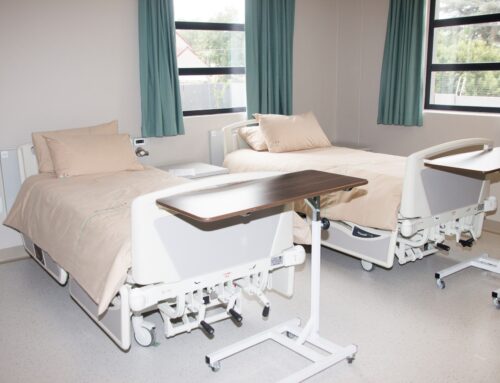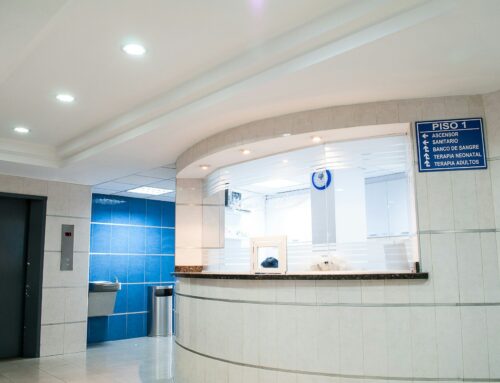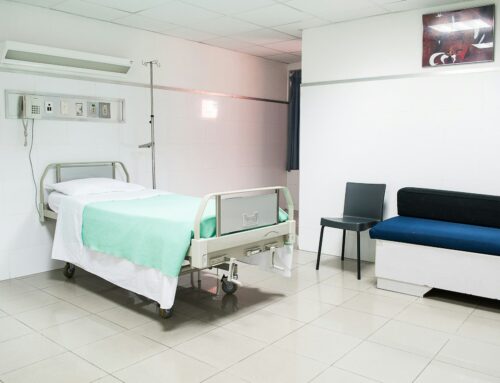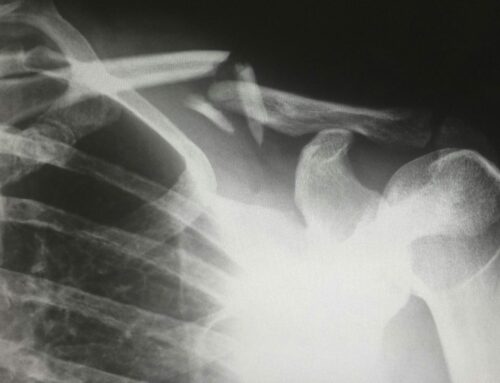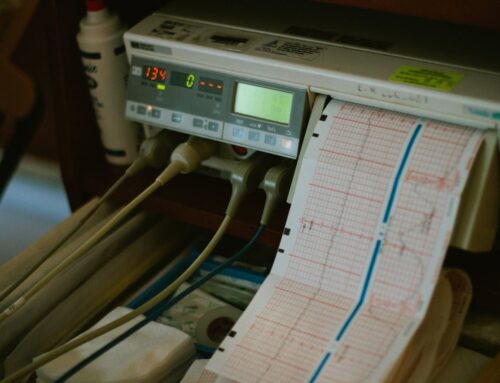Navigating a medical negligence case can be a daunting experience for anyone. The complexities of legal proceedings, coupled with the emotional toll of dealing with a healthcare-related grievance, often make the process overwhelming. However, mediation offers a promising alternative to the traditional court system, allowing parties to resolve disputes in a more amicable, cost-effective, and confidential manner. Mediation is gaining traction in Ireland as a preferred method of dispute resolution in medical negligence cases. This blog will explore why mediation could be the best option for resolving such disputes, focusing on its process, benefits, and the supportive legal frameworks that have been established in Ireland.
Understanding Mediation in Medical Negligence Cases
When it comes to resolving medical negligence cases, mediation presents a distinct approach compared to traditional litigation. This section will explore what mediation entails and how it specifically applies to medical negligence, providing a clear understanding of its role in dispute resolution.
What is Mediation?
Mediation is a structured, voluntary process where a neutral third party—the mediator—assists the disputing parties in reaching a mutually agreeable solution. Unlike litigation, where a judge makes the final decision, mediation empowers the parties to control the outcome. In the context of medical negligence, mediation involves discussions between the patient (or their representatives) and the healthcare provider, facilitated by a mediator with expertise in both legal and medical issues.
This process is designed to foster open communication, allowing both parties to express their concerns, understand each other’s perspectives, and work towards a resolution that satisfies both sides. Mediation is particularly suited to medical negligence cases due to the often personal and sensitive nature of the disputes, where preserving relationships and achieving a resolution quickly are paramount.
How Mediation Works in Medical Negligence
The mediation process in medical negligence cases typically begins with the selection of a mediator, who is agreed upon by both parties. Initial meetings are held to outline the issues at hand and establish the ground rules for the mediation. During the mediation sessions, each party presents their case, often with the assistance of legal counsel, and the mediator facilitates discussions aimed at finding common ground.
The mediator’s role is not to decide the case but to help the parties explore solutions that they may not have considered. This can include apologies, financial compensation, or other remedies tailored to the specific needs of the parties involved. The process is highly flexible and can be adapted to fit the unique circumstances of each case, making it a viable alternative to the rigid procedures of court litigation.
The Benefits of Mediation in Medical Negligence Cases
Mediation offers numerous advantages over traditional litigation, particularly in the context of medical negligence. This section will delve into these benefits, highlighting why mediation is becoming an increasingly popular choice for resolving such disputes.
Confidentiality and Privacy
One of the most significant benefits of mediation in medical negligence cases is the confidentiality it provides. Unlike court proceedings, which are public, mediation sessions are private and conducted without the risk of media exposure. This is crucial for both healthcare providers and patients, as it allows them to discuss sensitive issues without fear of reputational damage or public scrutiny.
Furthermore, mediation allows healthcare providers to offer apologies or explanations without the risk of these statements being used against them in court, which can be a significant factor in reaching a resolution. This aspect of mediation not only helps in preserving the professional reputation of healthcare providers but also provides patients with the acknowledgment they seek, often leading to a more satisfactory resolution.
Cost and Time Efficiency
Mediation is also highly cost-effective compared to traditional litigation. Legal proceedings in medical negligence cases can be prolonged, often taking years to resolve, with associated legal fees mounting over time. Mediation, on the other hand, can lead to a resolution in a fraction of the time, significantly reducing legal costs for both parties.
Moreover, the success rate of mediation in resolving medical negligence cases is impressive, with approximately 70-80% of cases resulting in a settlement. This efficiency not only saves money but also reduces the emotional strain on the parties involved, making it an attractive option for those seeking a quicker and less adversarial resolution.
Flexibility and Creative Solutions
Another key advantage of mediation is the flexibility it offers in crafting solutions. Unlike court rulings, which are bound by legal constraints, mediation allows the parties to explore creative and personalised outcomes that better suit their needs. For example, in some cases, healthcare providers have agreed to provide additional medical treatment, such as fast-tracked procedures, as part of the settlement.
This ability to tailor solutions to the specific circumstances of the case makes mediation a highly effective tool in resolving medical negligence disputes. It ensures that both parties can achieve outcomes that are not only legally sound but also personally and emotionally satisfying.
Ireland’s Mediation Act 2017
The rise of mediation as a preferred method for resolving medical negligence cases in Ireland is not just due to its benefits but also because of the robust legal frameworks that support and encourage its use. The Mediation Act 2017 is a cornerstone in promoting mediation in Ireland, particularly in medical negligence cases. The Act was introduced to encourage the use of mediation as an alternative to court proceedings, aiming to reduce the costs, time, and stress associated with litigation. Under the Act, solicitors are required to inform their clients about the option of mediation and its potential benefits before initiating court proceedings. This legal mandate ensures that all parties are aware of mediation as a viable option, which can often lead to a more amicable and efficient resolution.
Furthermore, the Mediation Act emphasises the confidentiality of the mediation process, which is particularly relevant in medical negligence cases where sensitive personal and medical information is involved. The Act also allows for the agreement reached in mediation to be legally binding, provided both parties consent, thus offering the security of a formal resolution without the need for court involvement.
When to Consider Mediation
While mediation offers numerous advantages, it is not always the best choice for every medical negligence case. Mediation is particularly effective in cases where the parties are open to dialogue and willing to compromise. It is best suited for situations where the relationship between the patient and healthcare provider has not completely broken down and where both sides are interested in reaching a mutually beneficial solution. For instance, mediation may be the best option for navigating the complexities of defective medical devices.
However, mediation might not be appropriate in cases involving significant disputes over facts or liability.In such scenarios, traditional litigation might be more suitable, as it allows for a more thorough examination of the evidence and a binding judgement by the court.
It’s also important to consider the emotional aspects of the case. Mediation can be a less stressful alternative to court, particularly for those who wish to avoid the adversarial nature of litigation. If preserving a professional relationship or achieving a quicker resolution is a priority, mediation is often the best course of action.
Steps to Take if You Opt for Mediation
If you determine that mediation is the right approach for your medical negligence case, the following steps will help guide you through the process:
- Selecting a Mediator: Your solicitor will select a mediator who is experienced in medical negligence cases. Your solicitor can assist in finding a qualified mediator who understands both the medical and legal nuances of your case.
- Preparing for Mediation: Gather all relevant medical records, evidence, and documentation that support your claim. Work with your solicitor to prepare a clear presentation of your case, including your goals for the mediation.
- Engaging in the Mediation Process: During the mediation sessions, be open to discussions and willing to listen to the other party’s perspective. The goal is to find common ground and work towards a solution that satisfies both sides.
- Finalising the Agreement: If a settlement is reached, ensure that the agreement is documented and, if necessary, made legally binding. This will provide you with the security of knowing that the resolution is enforceable.
By following these steps, you can effectively navigate the mediation process and increase the likelihood of achieving a satisfactory outcome for your medical negligence case.
How Your Solicitor Can Assist You in Mediation
Mediation can be a highly effective way to resolve medical negligence disputes, but it requires careful preparation and strategic decision-making. This is where the expertise of a solicitor becomes invaluable. A solicitor can guide you through every stage of the mediation process, ensuring that your rights are protected and that you achieve the best possible outcome.
Guidance and Preparation
Your solicitor plays a crucial role in helping you understand the mediation process and deciding whether it is the right option for your case. From the outset, they can answer any questions you may have and provide advice on the benefits and potential drawbacks of mediation in your specific situation. This ensures that you make an informed decision about how to proceed.
Once you decide to pursue mediation, your solicitor will assist in identifying, selecting, and appointing a mediator who is experienced in medical negligence cases. They will also help you prepare for the mediation by advising you on the terms of the agreement to mediate and the rules of engagement. This includes briefing the mediator on the key aspects of your case and ensuring that all necessary documentation and evidence are in order.
Strategic Advice and Negotiation
One of the key advantages of having a solicitor during mediation is the strategic advice they provide. Your solicitor can help you assess the legal and commercial strengths and weaknesses of your case, as well as those of the other party. This evaluation is critical in developing a negotiation strategy or settlement range, particularly in cases involving monetary compensation.
Additionally, your solicitor can assist in identifying the best and worst alternatives to a mediated settlement, helping you understand the potential outcomes if mediation does not result in an agreement. This kind of scenario analysis is essential for setting realistic expectations and making informed decisions during the mediation process.
Support During Mediation Sessions
During the mediation sessions, your solicitor will be by your side to provide ongoing support and legal advice. They can assist you in drafting a position statement for the joint meeting, help decide who should attend the mediation sessions, and advise you on alternative options for resolution and settlement. If a settlement is reached, your solicitor will ensure that the agreement is properly drafted and that all legal aspects are covered.
Your solicitor’s role does not end once a settlement is reached. They will also assist in implementing the settlement terms and, if necessary, provide further legal support if any issues arise post-mediation.
Having a solicitor guide you through the mediation process not only enhances your chances of a successful outcome but also provides peace of mind knowing that your legal rights are fully protected.
Final Thoughts
Mediation offers a powerful alternative to traditional litigation for resolving medical negligence cases in Ireland. It provides a confidential, cost-effective, and flexible approach that can lead to quicker resolutions while preserving relationships and reducing stress for all parties involved. With the support of recent legal frameworks like the Mediation Act 2017, mediation has become a crucial part of the dispute resolution landscape in medical negligence cases.
However, the success of mediation largely depends on the preparation and strategy employed, which is why having a knowledgeable solicitor by your side is essential. From guiding you through the process to providing strategic advice and ensuring that your legal rights are protected, your solicitor can significantly enhance your chances of achieving a satisfactory outcome.
If you’re considering mediation for a medical negligence case, we encourage you to get in touch with us at McElhinney & Associates Solicitors. Our experienced team is here to help you navigate the complexities of mediation and secure the best possible result for your situation.
Disclaimer
In contentious business, a Solicitor may not calculate fees or other charges as a percentage or proportion of any award or settlement.
This information is for guidance purposes only. It does not constitute legal or professional advice. Professional or legal advice should be obtained before taking or refraining from any action as a result of the contents of this publication. No liability is accepted by McElhinney & Associates for any action taken in reliance on the information contained herein. Any and all information is subject to change.
About the Author
Jolene McElhinney, BBLS, Principal Solicitor
Jolene McElhinney is the founding principal of McElhinney & Associates, renowned for her expertise in employment law and personal injury claims across the North West of Ireland. With a distinguished academic background and over a decade of experience, Jolene is dedicated to providing personalised, expert support to her clients, ensuring they navigate the complexities of the legal landscape with confidence and clarity.

